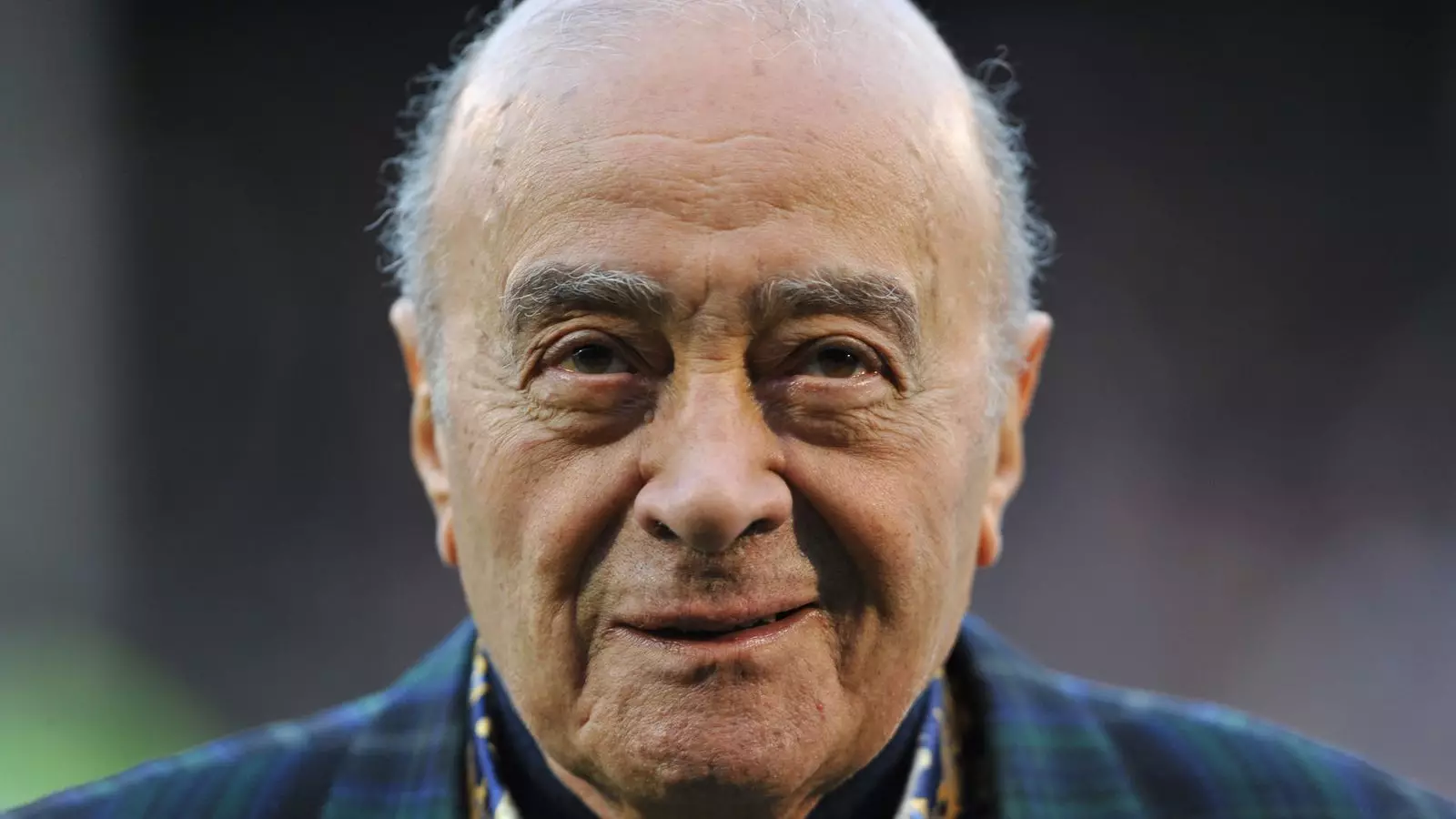The revelations surrounding Mohamed al Fayed, the former owner of Harrods, have reignited discussions about the legal system’s response to allegations of sexual misconduct. The Crown Prosecution Service (CPS) recently admitted to its failures in prosecuting al Fayed for two separate incidences of sexual abuse. The gravity of these claims, along with the legal system’s hesitance, amplifies the discourse around victim advocacy and the flaws within the judicial process itself. As the allegations mount and more voices begin to surface, it’s imperative to analyze how the situation has evolved and the implications it holds for future victims.
Several women have come forward detailing their experiences at the luxury department store, alleging that al Fayed subjected them to rape and sexual assault while they were employed there. This widespread misconduct paints a troubling picture, characterized by predatory behavior, where al Fayed purportedly “cherry-picked” employees to bring to his executive suite. The lawyers representing these women described him as a “monster,” a title that encapsulates both the horror of the accounts shared and the pervasive culture of silence that often accompanies such allegations in high-profile cases.
With over 150 inquiries reportedly generated following a BBC documentary on al Fayed, the shadows of power and privilege loom large over the allegations. These figures raise questions about the accountability of influential figures and highlight the pressing need for a transparent and sensitive legal approach when dealing with sexual assault claims.
Despite presenting evidence regarding al Fayed to the CPS, there were notable failures in the legal system’s response. The CPS’s spokesperson shared that two significant accusations—one in 2008 involving a 15-year-old girl and another in 2013 concerning adult rape—were subject to police investigation but ultimately not prosecuted. In both of these cases, the prosecution flagged a lack of realistic prospects for conviction as their rationale for inaction. This raises the troubling question: how can potential conflicts in evidence be interpreted to the detriment of victims seeking justice?
The acknowledgement of a 2015 investigation marks a pivotal moment for the CPS, as it exposes a significant gap in transparency regarding their interactions with law enforcement. It is evident that, in cases of sexual abuse, the standards of prosecution must be reevaluated to ensure that victims’ voices are seriously regarded rather than sidelined, allowing powerful figures to evade accountability.
The conversations surrounding the allegations against al Fayed become even more complex against the backdrop of his relationships with members of the British royal family. Notably, former head of royal protection Dai Davies indicated that concerns regarding al Fayed’s reputation circulated as far back as the 1990s. He expressed dismay regarding Princess Diana’s decision to vacation with al Fayed, suggesting a shocking oversight by not thoroughly considering the potential ramifications of such alliances. This revelation marks a crucial intersection between power, privilege, and the societal expectation of safeguarding vulnerable individuals from potential harm.
Buckingham Palace’s silence regarding these allegations only deepens the enigma. With the potential collusion of reputational politics and obliviousness, the royal family’s inaction adds a layer of complexity that speaks volumes about the dynamics of influence and protection that permeate the upper echelons of society.
In the wake of these harrowing allegations, institutions connected to al Fayed are reassessing their moral obligations. Harrods has issued a statement expressing their shock and disapproval of the claims made against their former owner while inviting past employees to come forward about their experiences. Meanwhile, Fulham FC, a club formerly owned by al Fayed, also expressed its deep concern. Such responses indicate a collective recognition of the need for institutional clarity and renewed advocacy for victims of sexual abuse.
As we explore these narratives, it is crucial to remember that accountability comes from a commitment to listening, believing, and acting upon victims’ reports. The case of Mohamed al Fayed serves as a stark reminder of the systemic failures present in our legal framework and calls for a proactive approach to ensure the safety and justice for those who have been victimized. The courage displayed by those speaking out against their abuser can act as a catalyst in fostering an environment where justice, accountability, and respect are prioritized for all.



Leave a Reply